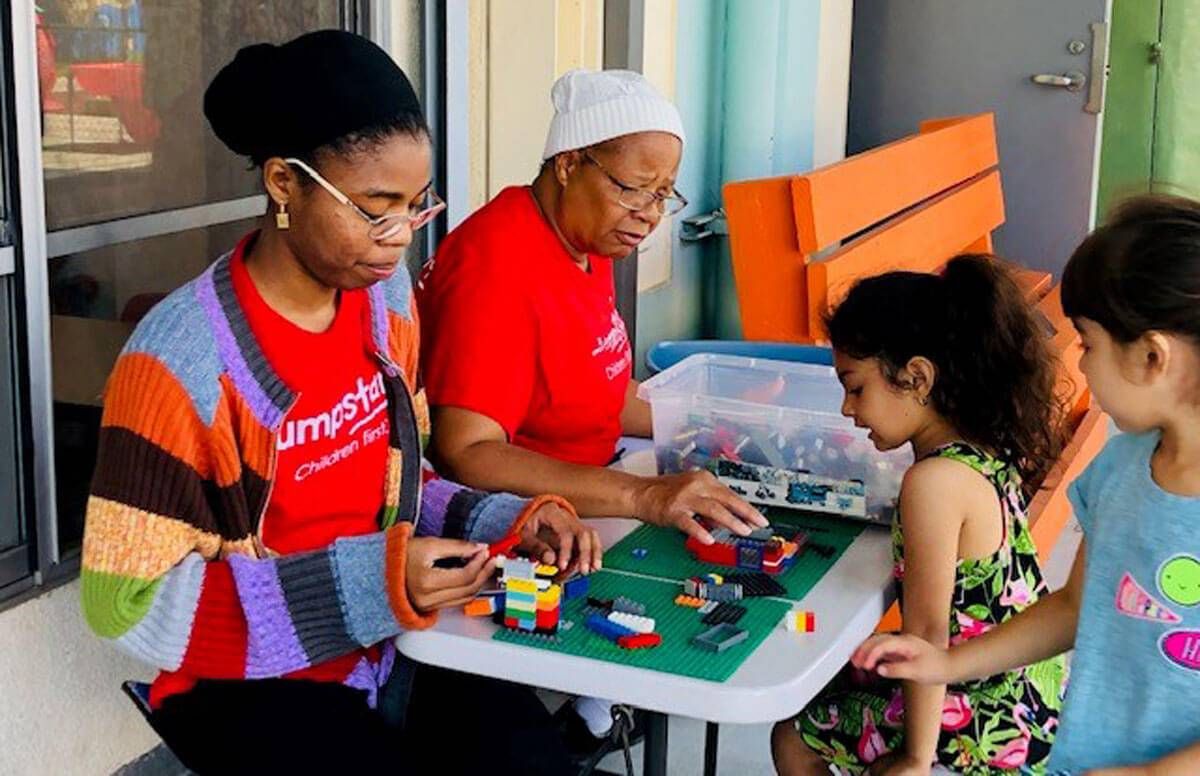OPINION: 2020 Election: The Candidates' National Service Plans
One presidential hopeful has a service proposal to unite generations
I’ve been studying the candidates running for president, searching for ideas they have to bring us together as a nation. As a former board member of the federal Corporation for National and Community Service (which includes AmeriCorps and Senior Corps), I see national service as one of the best ways to unite people.


I’m glad to say that a number of Democratic presidential candidates this year do, too. President Donald Trump, the likely Republican candidate, said on the 2016 campaign trail that he would look into expanding national service opportunities “very seriously.” But the Fiscal Year 2020 federal budget he submitted to Congress, like the two he submitted before it, would eliminate federal funding for all national service programs.
An Intergenerational National Service Idea
One of the Democratic hopefuls, Mayor Pete Buttigieg, has what I think is an especially intriguing national service idea that would bring older and younger generations together. It’s one of the first pairings of “intergenerational” and “service” I’ve seen from any president or presidential candidate since John F. Kennedy encouraged older adults and young people to sign up for the Peace Corps.
Buttigieg's Intergenerational Service Corps would "focus on caregiving, mentorship, and other intergenerational service opportunities."
Buttigieg’s ambitious New Call to Service would dramatically expand the number of opportunities for young people who want to serve in programs like AmeriCorps. Both he and Democratic candidate Rep. Seth Moulton would make national service a cabinet position. Rooted in their experiences in the military, Buttigieg and Moulton want civilian service opportunities to be available for all young people who want to serve.
Several Democratic candidates would create national service programs dealing with climate change, the environment and conservation. Sen. Elizabeth Warren has proposed a 10,000-strong Civilian Conservation Corps. Gov. Jay Inslee and Rep. John Delaney would create a Climate Corps. Moulton wants to see a Federal Green Corps. And Buttigieg proposes local communities of service, a Climate Corps and a Community Health Corps.
Our Commitment to You This Election
This report is part of an ongoing series on the 2020 presidential election and other significant U.S. elections. Our goal at Next Avenue is to provide accurate, relevant and impartial reporting on the issues that matter most to older Americans. In the run-up to election day, we will report on the candidates, parties and issues so you can determine who best stands for your needs. We also want to hear from you on what issues are most important and why, to help guide our election coverage.
Tying Service to Education and Job Training
Many of the Democrats’ national service plans explicitly connect service to education and job training, sometimes patterned after the GI Bill.
For example, Sen. Kirsten Gillibrand would offer every young person free tuition for two years of public or community college if they commit to one year of national service; she’d double the benefit for two years of service.
Delaney wants government to partner with companies and unions to provide infrastructure apprenticeships, with young people mastering skills while improving public parks or renovating federal buildings to make them green.
Sen. Michael Bennet, a longtime proponent of national service, has co-sponsored bipartisan legislation to exclude from federal taxation the AmeriCorps Education Award (up to $6,095 in Fiscal Year 2019).
The Intergenerational Service Corps Plan
But I think Buttigieg’s call for an Intergenerational Service Corps is the one big, breakthrough idea, because it recognizes the value of service by, and for, people of all ages.
As his proposal explains it, the Intergenerational Service Corps would “focus on caregiving, mentorship, and other intergenerational service opportunities.”
I’ve long believed that working shoulder-to-shoulder across the generations is a way to bridge generational divides. But younger and older people serving together in teams hasn’t been the norm for national service.
Age Restrictions in Some National Service Programs
Some national service programs carry age restrictions.
AmeriCorps National Civilian Conservation Corps , for example, requires applicants to be between 18 and 24. Senior Corps programs like Foster Grandparents require applicants to be 55 or older. And even though the 2009 Serve America Act set a goal that 10 percent of AmeriCorps members would be 55 and older, this modest age integration hasn’t come to pass.
Still there are compelling local examples of intentional intergenerational service that are working well.
Successful Local Intergenerational Programs
Jumpstart in Los Angeles engages multigenerational teams of older adults and college students to support preschool summer programs. Metropolitan Family Service in Portland, Ore., has college-student AmeriCorps members developing and supporting inter-generational programs. And a few AARP Experience Corps affiliates across the country pair younger AmeriCorps and VISTA members with older volunteers who tutor and mentor elementary school students.
Many of the benefits of service by people of all ages — students, teachers and older volunteers — are well documented.
So far, Buttigieg — the youngest candidate in the race and a millennial — is the only one to talk about how service can bring the generations together.
As the election season progresses, I’ll be watching for other ideas from candidates of any political persuasion that could bring us together as a nation.
I hope you will be, too.

